S72+ is a new collaborative dinner series by studio_lovell, founders of The Common Table. It grew out of our desire to expand the conversations around food. We believe the best way to bring people together to exchange views and experiences is around a table.
Together with Berthold Dieker from Vitsœ, our co-host for this first dinner in Berlin, we gathered twelve individuals of different ages and from a range of different industries and disciplines, including design, technology, architecture, manufacture, publishing, compliance, food and distribution, to join us at the table and talk about a pivotal issue of our time: supply chains. The location for this interdisciplinary dinner discussion was the living/work space of Arch+ magazine in Berlin.
The aim of the S72+ dinners – apart from sharing good food and good company – is to encourage the exchange of experiences, issues and solutions across disciplines and also, perhaps, to spark inspiration and create new friendships. Therefore, seventy-two hours later, after they had time to digest, we asked each guest to share what they learned and took home from the evening.
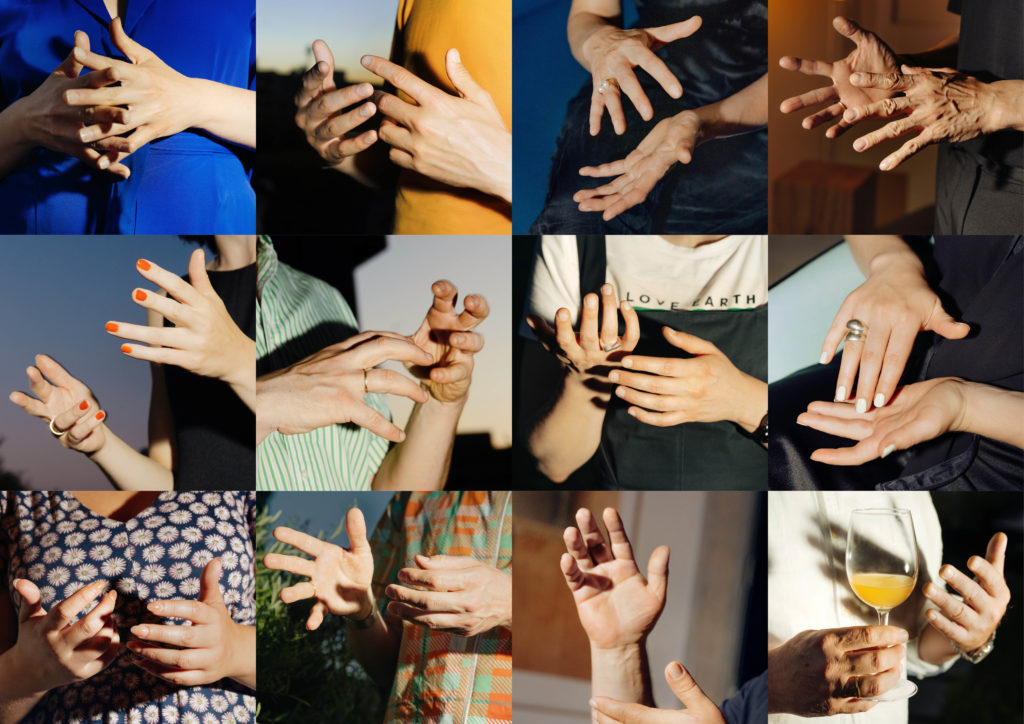
The subject we asked them to discuss was not an easy one, as Robert Suk, Design Director at the German porcelain and glass manufacturer Rosenthal pointed out: “I’ve been wondering why it’s so difficult for me to answer your question about what I took home from the dinner”, he said. “Thinking about supply chains in terms of dialogue and communication, finding the right words seems to me to be the biggest problem/topic at the moment. There are no simple answers to complex questions and this is probably exactly the problem, many people expect or want simple answers.”
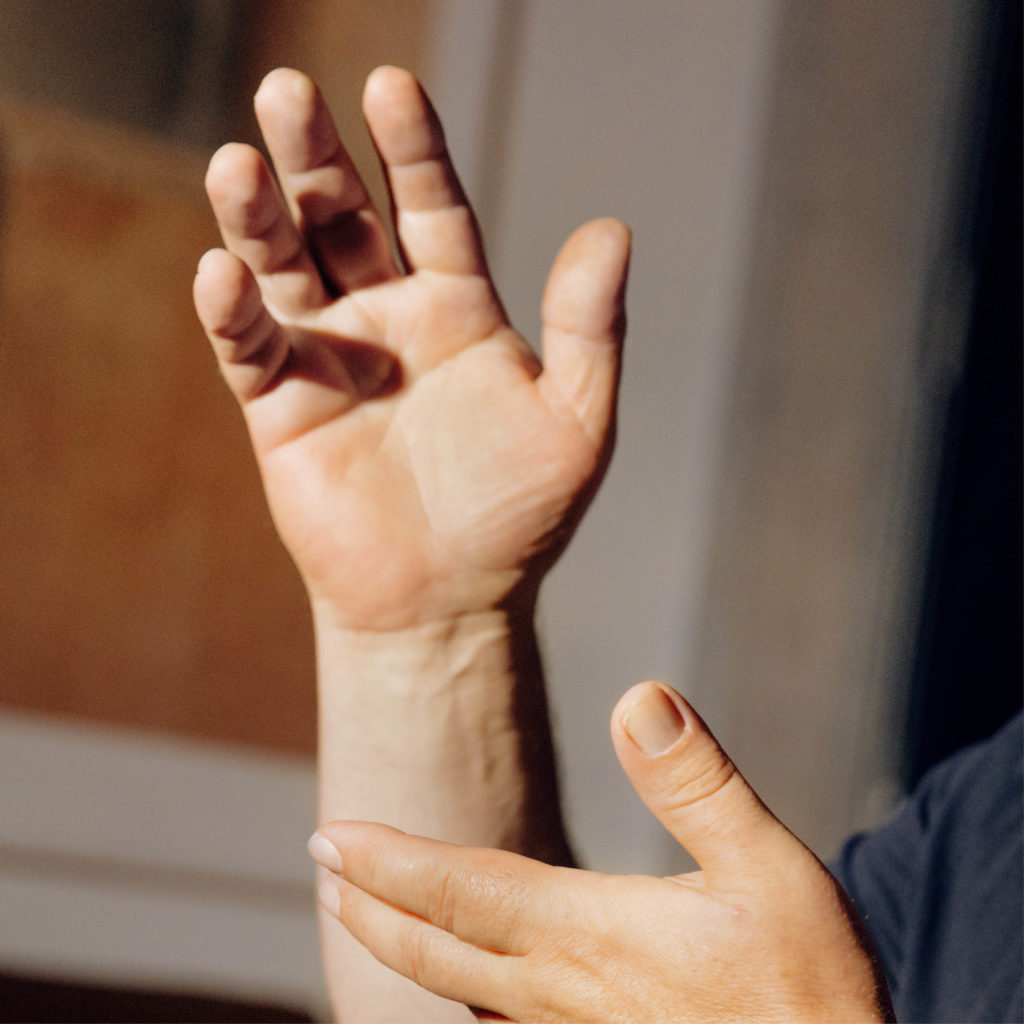
Nevertheless, we had a table full of guests well-versed in complexity. Much was discussed at the meal as they got to know each other, but the exchange about supply chain concerns seemed to revolve around a set of three core topics.
Materials
The first of these core topics related to changes in the supply chains of materials affecting the building industry, food and products. “ARCH+ is also encountering supply chain-related problems”, said Anh-Linh Ngo, architect, curator and editor-in-chief of ARCH+ magazine. “Paper costs have risen considerably and availability is limited.”
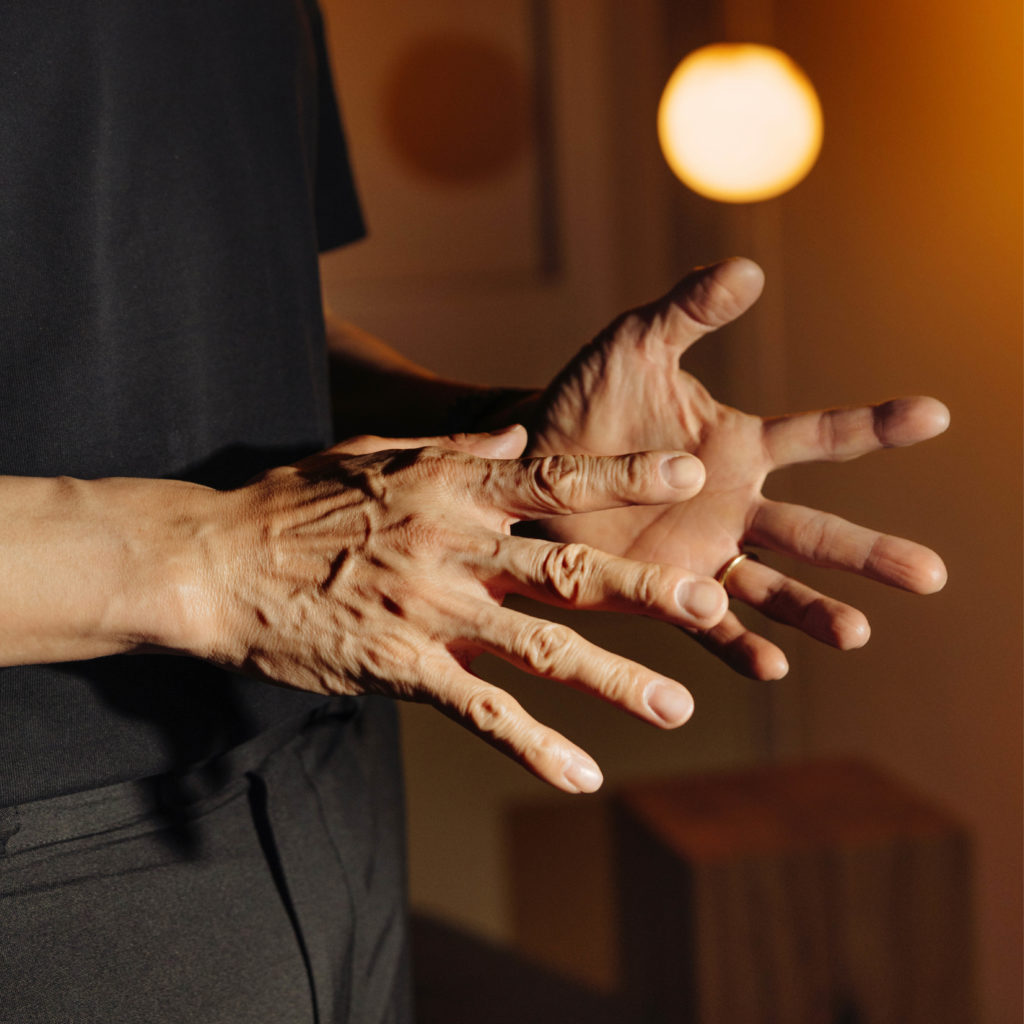
“Raw materials now seem to be very hard to come by for consumer goods of all kinds,” said Annabelle von Reutern, architect and head of business development at Concular, a sort of “Tinder for building materials” that uses intelligent data-based material matching to promote efficient re-use of building materials and circularity in the construction industry.”
“In addition to new acquisitions,” she continued, “it is also about appreciating what is already there. By repairing, cleaning and refurbishing, I extend the life of the products I already own. Own less, but with higher quality. And if I buy new things, I bring the old products back into circulation via marketplaces.”
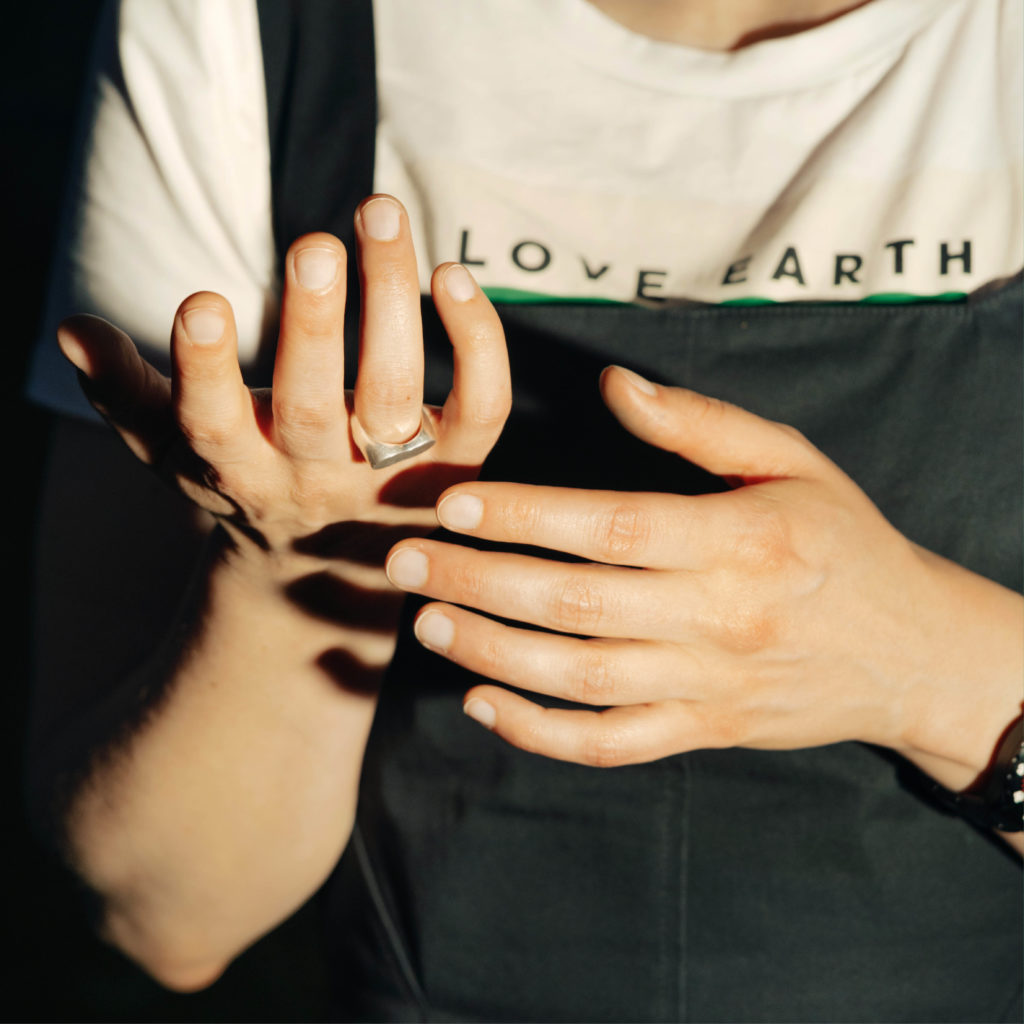
Arno Löbbecke, who is also an architect and managing director of Frizz23, Germany’s first collective building for cultural commercial space agreed: “It is an incredible challenge getting materials and goods delivered throughout the building industry. The entire logistics have been shaken up by Covid-19 and the war. So there is a lot of nervousness and nobody can rely on the usual delivery times anymore.” He said he was inspired by Concular’s initiative to transform the building materials industry: “Specifically in cooperating with the original manufacturers on the recycling of their materials so that a building materials dealer can have recycled products in their range in addition to new products.”

Interestingly, Stephen K. Molloy, the co-founder of Fundamental, a Berlin-based maker and supplier of high-concept, mathematically inspired design accessories for homes and living, said his business was feeling the pinch less than those with bigger firms and projects: “As a small-medium customer of the factories we work with, we are used to being at the back of the queue and not always getting what we want when we want it”, he says. “As a consequence, supply disruption has been within the range of what we usually deal with. Energy issues also affect us mainly indirectly, unlike others at the table, they are something our suppliers have to worry about and pass on to us. What I learned through our discussion is that the size to which we have grown is a good one for hard times, we are just about big enough to have a small amount of sway with some of our suppliers, but not so big we have to deal with corporate virtue signalling or are trapped in certain production techniques.”

The introduction of more circular systems, it was generally agreed, is essential for adaptation to the broken trade and supply systems currently being experienced. “The main question is how to deal with the issue of scarcity, which will become more and more urgent in the future”, said Ngo. For the next two years, Arch+ intends to dedicate themselves to the themes of repair and maintenance, he added: “How can we make do with what is already there? How can we value the material resources we have at hand? How can we repair and maintain them?”
Waste and Availability
Inseparable from the topic of materials is of course the issue of waste. Mitch Seguin is the Director of Product Management at Flink and cofounder of ChefsList. He builds digital tools to help various levels of Germany’s food system to digitise and improve logistics. “The issue that I’ve become most aware of in my work is the correlation between availability and waste and the amount of waste produced by ensuring whatever you want is in stock, whenever you want it”, he says. “At Flink, we’re trying to use data to make the hard decisions around what types of fresh goods can be cut from the assortment whilst only sacrificing customer experience slightly. But the unfortunate truth is that waste will be created for as long as businesses need to compete with each other; if there aren’t avocados on Flink, you’ll just go to Gorillas or Rewe, and then Flink loses business, so they prefer to have waste instead.”

As co-founder of Sips Berlin, an on-demand delivery service for natural wines, Clara Higham-Stoinova was interested to hear about the waste issues that the on-demand grocery delivery businesses face and the implications for the larger food industry: “With so much choice available on these platforms, the amount of wastage is incredibly high even after items are given away to staff and sent to platforms like Too Good to Go. Given that there’s a great deal more data collection and real-time updates to the stock at these local fulfilment centres than there is in traditional supermarkets, I imagine the waste there can only be far higher.”
Unlike Flink and the high-street supermarket chains, Higham-Stoinova’s business is defined by limited availability. “Natural wine is, by its own nature, in short supply, given the rejection of mass production techniques and the decision to keep the area of farmed land below a certain mass of hectares, as well as the limitations caused by weather and water issues,” she says. “Therefore, meeting demand with an adequate supply is a challenge both my company and the natural wine industry face.”
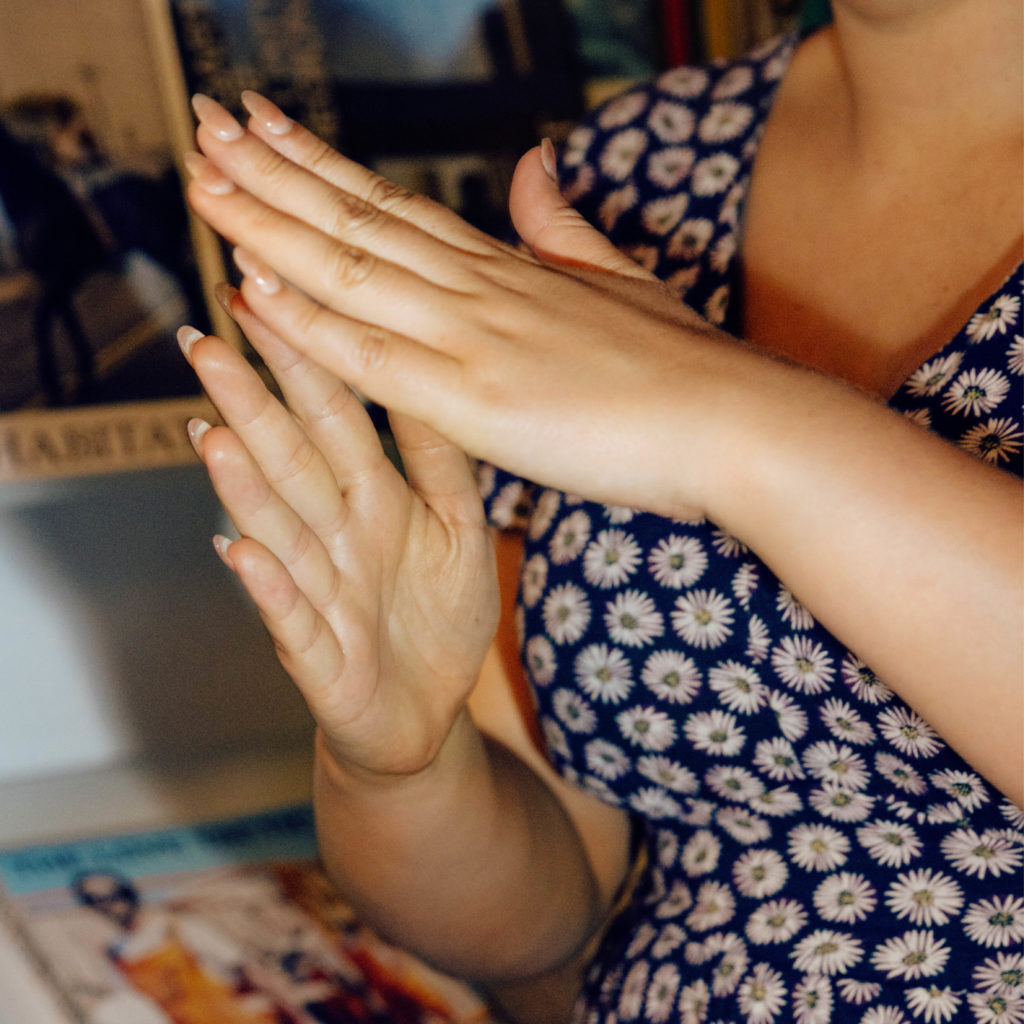
People
A number of guests also reflected on supply chain issues and perspectives in terms of how they relate to people as well as the environment: consumers and producers and labourers alike.
As extreme weather, shortages and global political instability increase, so too does cost. “Inflation is a big issue in the food sector right now. We spend a lot of time figuring out where to get the best price and still act responsibly”, said food sustainability strategist Olga Graf. She pointed out that transparency is also a significant theme that needs to be addressed: “Imagine you have a dish with ten different components, how do you 1) gather all the data about the origin of each component and 2) how and to whom do you communicate it? There is an enormous lack of data to provide full transparency on a complex dish or multi-component product.” Only when the consumer (and the retailer) have access to such data are they in a position to make informed choices about what they choose to buy and what not, whatever the reason.

Global supply chains of materials, products and labour can be incredibly complex and murky. Fashion in particular is an industry that has been in the spotlight in terms of lack of transparency. “I am not sure if it’s an issue or simply the complexity of the reality of supply chains in a globalised world that is full of both opportunities and imbalances”, said compliance expert Tatiana Kurancheva, Senior Manager Ethical Responsibility at Zalando. “I think what makes improving these realities most challenging from a human rights perspective is a) the lack of transparency and b) the varying maturity levels of targeted regulation and legislation.”
Alongside critical human rights issues, improving transparency in terms of origin and ingredients has the potential for empowering the consumer across pretty much all sectors. Insa Doan, art director in charge of product development at the porcelain and glass manufacturer Rosenthal, believes that “the consumer is ready for sustainable rethinking and industry needs to shift towards better solutions.”

It is clear, however, that the will of both consumers and producers as well as the further development of technology will be necessary to reveal inequalities as well as fairness; bad as well as good practices if global supply chain transparency is to improve. If this dinner revealed anything, it was that the interconnectedness of such an apparently diverse and non-related range of issues and disciplines illustrates well the need for interdisciplinary approaches to changing thinking as well as collective solutions.
Take Home
Bringing the scale back down to a dinner table and those sitting around it for this particular meal, a number of guests connected the global issues to their own human experiences. “The conversations, the food and the space made me think about our personal ‘human supply chains’ and how we become who we are. We talked a lot about memories and our past that brought us to this particular dinner table. It was fascinating to see such a diverse group of guests that is still somehow connected”, said Tatiana Kurancheva.
“All developments should involve such ‘table thoughts’, said Insa Doan. “The table setting itself also stuck in my mind: what better way to understand the beauty and topicality of working harder to preserve what already exists than by eating from the porcelain heirlooms that had belonged to Arno’s grandmother. For me, this is the perfect example of a cultural supply chain.”
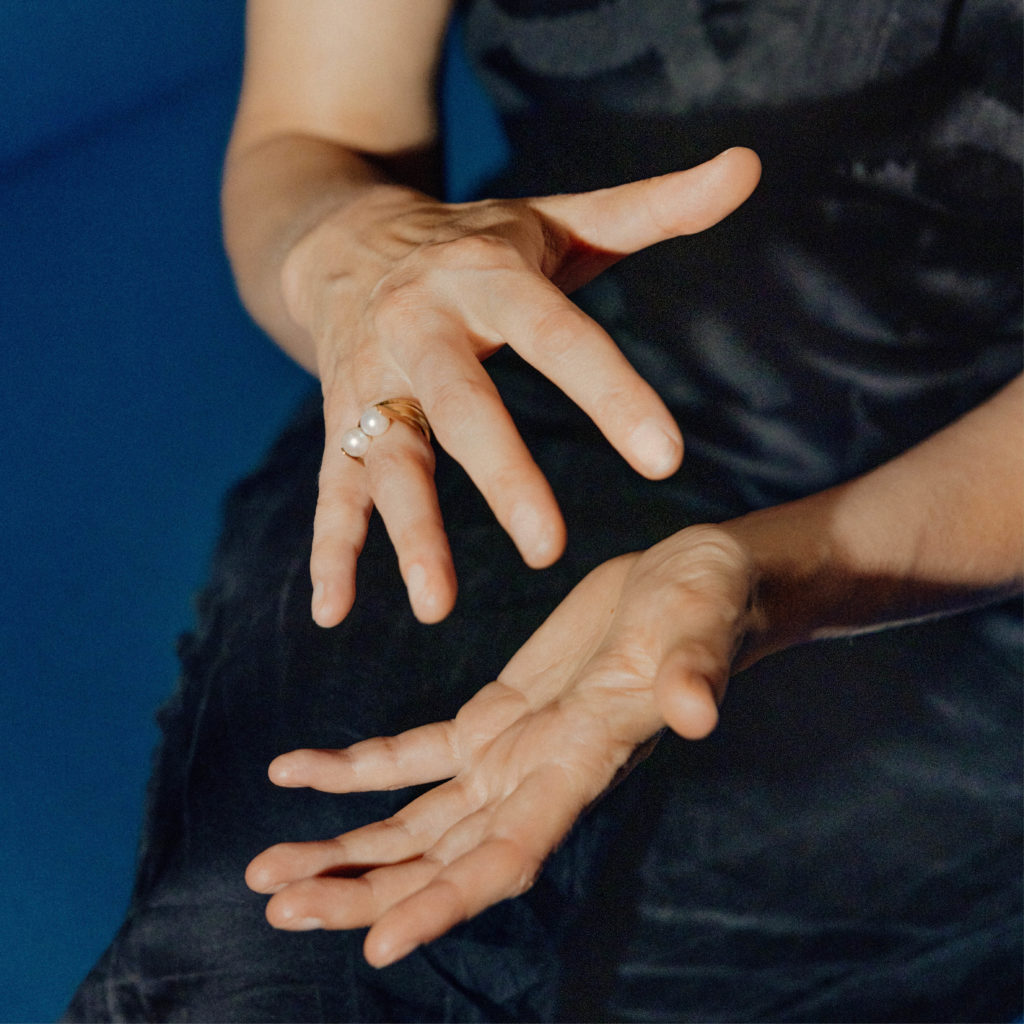
Whilst appreciating and learning from the discussion around circularity in the building industry, Olga Graf found she was happy to have left the insular circularity of her own bubble for new input into her thinking: “It was refreshing to be put into a completely new circle of people. It reminded me of how seldom this actually happens in my life. Sophie and Orlando invited a bunch of unconventional people and it felt like reading an exciting book when speaking to each of those characters and learning about them.”
“The dinner conversation made me realise once again that we are all in the same boat,” said Annabelle von Reutern. “Each of us has different topics and in the end they are the same. We all want and should live appreciatively on this planet with joy. But not at the expense of others, but like a guest: grateful, respectful, interested, present. And preferably without leaving any rubbish behind.”
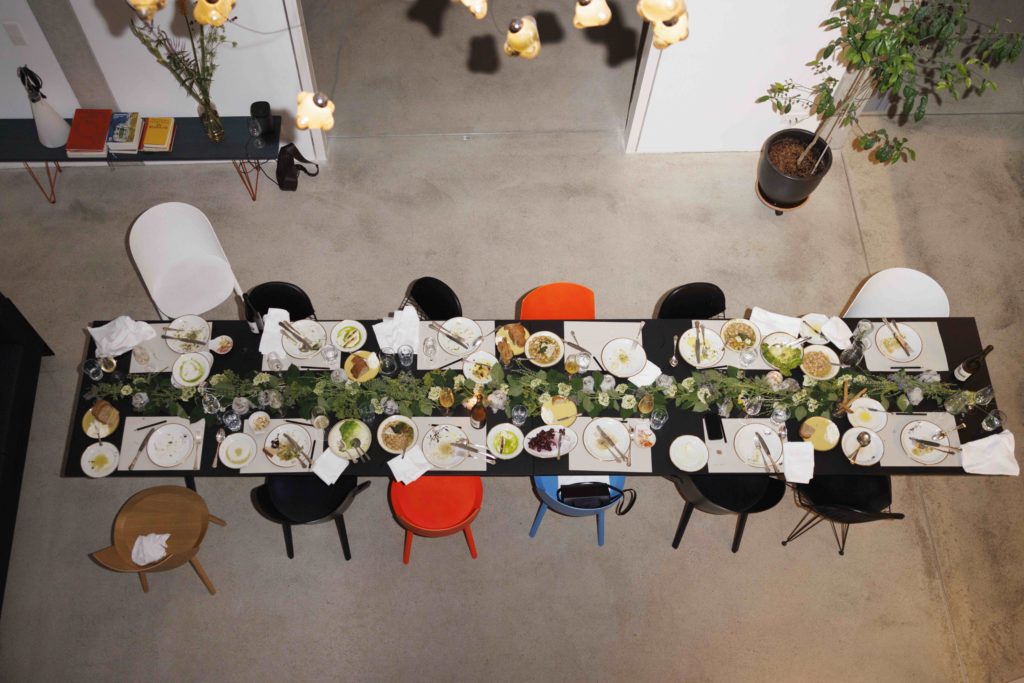
As studio_lovell we plan to continue our S72+ dinner series with a variety of different partners in different disciplines and industries. Each time there will be new guest constellations, new locations and new topics for discussion. We also want to work harder at making space for and inviting a greater variety of voices and perspectives at the table. Just as we continue to seek out the people and projects forging ways towards a better, fairer food future with The Common Table, the S72+ dinners aim to help put some of those projects into action through new connections and inspiration.
Photographer Lena Giovanazzi © 2022
As studio_lovell, mother and daughter team Sophie and Orlando Lovell are the founders of The Common Table and the S72+ dinner collaboration series. Special thanks to Berthold Dieker from Vitsœ and Vitsœ themselves for their generous support of this, our inaugural, dinner. And to Arno Löbbecke and Anh-Linh Ngo for so kindly sharing their amazing home and workspace. Our thanks too go to Sips Berlin for the wonderful natural wines and menu as well as chef Grace Donley for the delicious meal.






